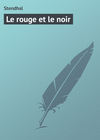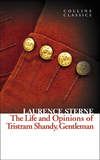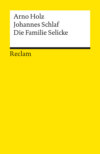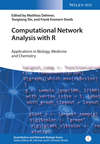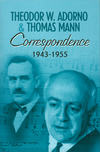Kitabı oku: «Wulnoth the Wanderer», sayfa 15
CHAPTER XXVII
Skoal!
To the longest day the night must follow, and to the best song an end must come; and so it is with the song of Wulnoth.
And truly, the song might have ended when it was love time and peace time, and when he and Edgiva the Beautiful were happy, but that there are other things to tell; or else how happened it that Gyso the Gleeman ever sang this song?
This, then, is the happening of it, though many things can be but briefly mentioned; for he who would sing all the wisdom and brave deeds of Alfred the Bretwalda must needs sing a long, long song.
Now, though Alfred the King had beaten the Danes and broken their power, and bound all England in one, not a year passed without some of the Black Strangers appearing, and many a hard fight did he have, and many a long period had Wulnoth to be away from the Lady Edgiva, either bearing the King's banner or defending his ports; for these pirates seemed to grow more numerous by being slain, and again and again did they make their attempts to bring our fair England beneath their rule.
And from Scandinavia came fresh hordes in their ships, and sailed along the English Channel, now attacking England, and anon France, and carrying desolation to one or the other.
There was that Hrolf, or Rollo, he of whom we have spoken, called the Ganger, or Walker, because he was so tall and strong that no horse could bear him. He came to England, but such a beating did he get, that he went to France and there made war until he at last made league with Charles the Simple, and had the French king's daughter given to him for his wife. And this Rollo was required to kiss the King's hand and call him overlord; but this was not to his mind; so, instead, he seized his foot and tipped the King over. This Rollo was given Normandy for his possession, and was baptized and called Robert; and well in after days had Saxon England to rue that Robert of Normandy ever lived, seeing that from him sprang that Norman William who put so hard a yoke on the Saxon shoulders.
Then came a mighty host – two hundred and fifty ships sailed against the south coast, and eighty more sailed up the Thames; and all these Alfred and his host had to meet; and these were led by that Hastings who of all the Danish holdas was amongst the most noble.
And after Guthrun had died, one Eric became King of East Anglia; and he broke troth with King Alfred, and aided the strangers, and the war was hard in the land.
And in those days did Alfred do a good thing; for he came upon a camp of the Danes, and there were the wife and the sons of this Hastings; and Alfred had them in his power, and might have forced Hastings to come to terms, but this he would not do. But he treated the lady and the children with courtesy, and sent them safe and unharmed to Hastings, with kingly greeting, though some there said that it was a foolish thing that was done. But Alfred was a true knight, and made no war against women and children; and this thing happened at that place which now we call Benfleet.
Hastings showed no gratitude, but advanced right across England and pressed Mercia, until the King and Wulnoth and the champions defeated him at the borders of the river Severn, and sent him back in full retreat to East Anglia.
Then did the Danes come sailing up against London, and their ships lay thick in the Thames, just where the river Lea joins it.
But Alfred built walls and drained away the water, and the Danes could not sail out again, and had to abandon the ships and flee back to East Anglia once more.
Then they burst forth again and crossed the country to the westward, and reached Quatbridge, and there they encamped. But Alfred, never daunted, came against them, and Hastings fled; and, weary of such a foe as the Saxon King, he sailed for France, and came no more against the land.
Then Alfred busied himself, and had many long ships built, and sent to Friesland for sailors, because the Saxons were not good at navigating the ships. But he had no foreigners for warriors, for his own good Saxons, if they could not manage the sails, could handle sword and shield and spear; and thus he raised a goodly fleet, and drove the Danes from his seas, and delivered his coasts.
And once two Danish ships were fought and conquered, and the ships drifted ashore with all their crews, and were destroyed, and the vikings taken prisoners.
And now for once Alfred was not mild; for he had the men brought to his city of Winchester, and there he had them all hanged, man by man, and spared none. And in later days some have tried to cry shame on the King for this; but perchance if they had lived in his day, and seen the harrying and the burning, and had, like him, done nothing to bring the foe, but had dealt with them gently and fairly – if they had done this, they might perhaps have been quite as ready to teach the Danes a lesson, seeing that kindness was of no avail, and to hang the crews, as Alfred the Bretwalda was.
And through all this time of warring the King was busy thinking for his kingdom's good. He it was who had the Bible written in the tongue which the people could understand. He it was who taught himself Latin by translating sentence by sentence, what his friend Asser wrote for him. He taught the people how to measure time, by having candles marked and burning beneath glasses, so that every mark reached meant one hour gone. He it was who wrote books that to-day even are helpful to us – "The King's Hand-book" and the book called "Orosius" – and the book which he called his Family Library. Alfred it was who taught the people the law, and who gave them trial by jury, and the frithgild, by which each man was pledged to aid his neighbor. And in London the guild met, in a hall called the Guild Hall.
Alfred it was who made friends with all learned men and travelled men, with Audher, who had tried to sail northward to the pole, and with Walstan, who sailed right to the far end of the Baltic. He it was, too, who sent Bishop Swithelm all the way to India, to carry greetings to the Syrian Christians who dwelt there; and the stout old Bishop not only undertook the journey, but returned safe, and brought gifts to the King.
All these things did Alfred the King, the wisest man in England, as he has been justly called; and all the time he warred and defended the land from the foe; and so he lived, and did well; and Wulnoth was his faithful warrior, and grew gray in his wars; and then, in the end, the King sickened and died, and all the land mourned for him who had ruled so well and done so wisely.
Now, when Alfred the King was dead, trouble came and war again. For Edward, the son of the dead King, was proclaimed King, but Ethelwald, son of Ethelbald, he also claimed the throne; and between these two of one blood there was war and hate, and the sword-song again; and men gathered some to one side and some to the other and prepared for battle.
And then came Wulnoth, and he was now a gray-haired champion, and amongst the wisest in the land; and he joined Edward, for Edward was Alfred's son. And how he wished then that Guthred were with him; but alas! Guthred had died, and Guthred's sons were rebellious, and kept not faith. And Guthrun was dead also; and the Danes of the Danelagh and of Northumbria and of East Anglia, they banded with Ethelwald, and were led by the Danish King, Eric; and they carried fire and sword once more, and made the sword-song be heard, and the land wept again for the sorrow that had come to it.
And the Danes and the people with Ethelwald were more than the people with Edward, so that Alfred's son had to flee from place to place, as the King, his father, had done in the days passed away.
And then did Wulnoth send seven times to the men of Cantua, over whom he had ruled; but they had their hearts darkened, and they refused to come to the King's aid, and Wulnoth grew sad, for now he thought that the end must surely come.
"Now, King," said Wulnoth to Edward, "I have seen three kings meet these Danes when their numbers were few; and two of the three kings were slain, and the third – thine own father – beat the foe and drove them away. Now, if it is thy mind to take the chance, let us march forward towards the borders of East Anglia, and there on the marches we will meet the foe and see what may be done."
"Let it be as thou sayest, thane," answered Edward; "for of a truth thou art the most skilled and renowned in the land."
So Wulnoth kissed Edgiva his wife, and bade her adieu; and she looked into his face and wept; and she said —
"Wulnoth, my husband, often hast thou gone away to the war game, and my heart has been sad, for I have feared for you. But now you go, and my heart is not sad but dead, for I know that we shall meet no more in life here, but in the life hereafter shall we meet."
"Cheer thee, my lady wife," he answered. "'T is a dark saying." But she said —
"I know, husband. The spirit of Wyborga seems upon me, and I know we part now, and you will no more return alive."
"Why, then, lady wife," he answered, "if that be so, the end must come when God wills. Surely you would not have me act a nithing part, and leave the son of Alfred in his hour of need?"
"Thou knowest better, husband," she made answer. "I would have you go to duty, as you have ever gone. Now kiss me once more, for my heart is heavy and my spirit dark."
So Wulnoth kissed Edgiva and bade her farewell, and charged her that if it should be as she feared, then she should give his last greetings to his two sons who were away in Mercia at the time and seek to counsel them ever to serve Edward faithfully.
Then towards East Anglia did Wulnoth march with the King – towards that very land where first he had met with Alfred, and where he had seen Edmund the Martyr lay down his life for the Lord's glory.
And there stretched the army of Ethelwald, like a host spread over the face of the land.
"Now," said Wulnoth as he gazed upon the foe, "here we are like to have a battle indeed. And here must every man prove himself a hero, for there is no choice but victory or death for us."
And then did the war-horns sound, and the armies rushed to the fray, and the forces of Ethelwald were so numerous that they quite surrounded the army of Edward, as the tide running in surrounds the sentinel rocks that line the shore.
But Wulnoth and his friends, and all who were true to Edward, they met the foe undaunted, and the war-cries rang out and the sword-song was heard, and, mighty as the host of the foe was, they could not overwhelm the Saxons.
All day did the battle rage, until the water in the dykes ran crimson, horrible to see, and the dead lay thick on the earth, and yet neither side could claim the victory.
But when the day drew in, and even the champions were weary and the numbers were thinned, the Danes made a desperate charge and broke the Saxon ranks; and in that charge Wulnoth, sore and wounded, smote Ethelwald the son of Ethelbald from his saddle, and laid him dead upon the earth. And then did he cry to Edward the King and say —
"Greeting, O King! Now did the Lady Edgiva prophesy that this would be my last fight, and lo! I am wounded and nigh to the end. This is my rede, O King, that ye draw off, for though the Danes are smitten through and through, by very numbers they will conquer if ye tarry. Draw off – the man who sought thy crown is dead, and the evil will die of itself. But as for me, I will fight one last fight and then, good-night!"
And with that Wulnoth pushed forward, and he came nigh the Danish king Eric, even Eric the Mighty, and he cried greeting to him —
"Hail, King Eric!" he said. "I have fought in many a field of slaughter, but never in such a one as this. I have slain many of thy holdas in my time, and now the end draws near. How sayest thou, Eric? I am a thane of name; I like not to die by common spear. Come now, and let us twain speak a word, and if I die I die by a champion's hand, and if I smite thee down surely I shall follow thee quickly. Skoal, Skoal! – the old Northland cry, Eric! Wilt thou go holmgang with me?"
"Ay, for thou hast slain Ethelwald, and I will slay thee right gladly," answered the Dane, "and if I die by thy hand, then honorable is the death."
So these twain met, and they fought, and all around stood still that the champions of pride might play the man's game unhindered. And it was a mighty fight, and a good fight, and of it the scalds and the gleeman sang for many a day.
For Wulnoth smote a blow that cleaved its way through Eric's left wrist, and Eric struck back with all his force, and the blow fell on the shoulder of Wulnoth and nigh severed it; and these two champions reeled back and looked at each other, and Wulnoth cried again —
"Skoal to thee, smiter of blows! Skoal! Methinks that we shall journey together," and then he changed his axe into the other hand and again they fought. And Eric smote Wulnoth sore and deep in the side, and Wulnoth raised his axe high in his left hand and smote with all his might, and helm and head were split together, and King Eric fell side by side with his foe.
Then did Wulnoth raise himself and cry again —
"Skoal! Skoal to thee, Eric, brave champion! Skoal to thee, Edward, for both thy foes are slain and thou shalt reign in peace. Skoal! I – I – " and then his voice failed and he gasped, "Edgiva! Edgiva beloved! I die," and with that he fell dead across the body of King Eric.
And the battle stayed, for indeed none could fight longer. And the Danes buried King Eric on the field, but the Saxons bore the body of Wulnoth with sorrow and brought it safely to Edgiva. And the field of that fight was called amongst men the Field of the Great Slaughter – so vast was the number who lay there dead.
And the whole of the Saxons made lamentation for Wulnoth, and they buried him with all honor; and Edgiva gave his message to his sons and smiled upon them and then laid her down. And soon her own death came, and she went to join her husband in the Kingdom of that Master Whom they had both learnt to serve.
And Edward became king, and, that the name and the fame of Wulnoth might not be forgotten, he ordered that Gyso his gleeman should make this song. And Gyso obeyed and sang, and they said it was a good song and a true song, and that Wulnoth was worthy of the singing.
And so ends the song; and it is for those who read to say whether it is as Gyso said, fair and true, and whether the deeds of those days are worthy of honorable remembrance.
And from across the "has-been" they look, the heroes of old – Wulnoth, and Wahrmund, and Osric, Guthrun, Guthred, and Alfred; and to you, their descendants, they cry in the cry of the old Northland, to follow their steps, and be heroes in your day as they in theirs, and follow the White Christ Whom they loved and served, when they cast aside the gods of the Northland.
To you they cry, you sons of the Saxons —
"Skoal! Skoal! Skoal!"




